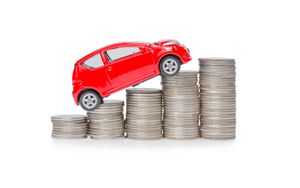(Tiper Stock Exchange) – Continued growth for the car market in Europe, which in February (for the seventh consecutive month) shows 902,775 registrations and an increase of 12.2% compared to 804,414 units in February 2022. The first two months of the year were therefore positive with 1,814,048 iregistrations, up by +11.5% compared to 1,627,193 in January-February 2022.
As for the self spread “with the plug” (Ecv) not encouraging news for Italy that with 8% are confirmed in last place, distant not only from Germany, the United Kingdom and France (with shares of 21.5%, 22.9% and 23.8% respectively), but also from Spain (11.0%). Last place for Italy is also valid in the two months with a 7.6% Ecv share, against 18.5% in Germany, 21% in the United Kingdom, 23.1% in France, 11% in Spain.
“The automotive industry has been investing hundreds of billions in decarbonisation for years, but these days the issue is experiencing a moment of great confusion at national and European level. Today we are witnessing a debate not based on scientific data but polluted by partisan positions, which risks leading astray and damaging both consumers and workers”, underlines Andrea Cardinali, Director General of UNRAE.
“The 12 years left for 2035 – he adds – represent two and a half cycles of productand many manufacturers have already declared that they will stop the production of internal combustion vehicles even before that date. In this climate of uncertainty, without a clear strategy, Italy risks finding itself at the end of the train of change”.
“In February 2023 the European auto market records growth for the seventh consecutive month (+12.2%) thanks to the comparison with the market result of February 2022 (-5.4% and 804,028 units), which had been the worst February in terms of volumes since Acea carried out the survey”. Thus Paolo Scudieri , president of Anfia, underlining that “all five major markets (including the UK) report a positive variation: the most significant double-digit increases are those of the United Kingdom (+26.2%), Spain (+19, 2%) and Italy (+17.4%), followed by France (+9.4%) and Germany (+2.8%)”. “The context – he continues – in which the automotive industry moves in this the beginning of 2023 remains very challenging, also in light of the recent European provisions on the new CO2 targets – whose developments we await, after the postponement of the vote by the European Council – and of the proposal on the Euro 7 standard, which we believe needs to be thoroughly revised in terms of target, timing and testing methods, as well as coordination with the CO2 dossier”.
“On this last front, the recent statements by Frans Timmermans, Vice-President of the European Commission, seem to strengthen the possibility that the decarbonization of mobility is managed by also opening up to other technologies in addition to electric – as hoped by Anfia, leaving room not only for e-fuels, but also for bio-fuels and hydrogen”. “With these premises, it is important that the EU make a decision as soon as possible because this situation of uncertainty further weighs on the production chain, engaged in investments for the conversion of the plants and for the development of new technologies”, concludes Scudieri.
(Photo: © Sittipong Leetangwattana / 123RF)
